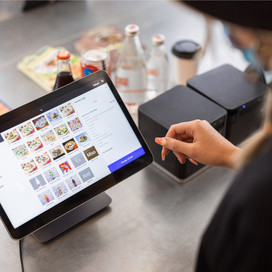Table of contents
You have a small business and you’ve decided to process credit and debit card payments. You may realise that handling payments can be among the more complicated parts of running your business. You may wonder what a merchant of record is, and how you might have to do business differently. Here’s what you should know to get started.
What is a merchant of record?
A merchant of record (MoR) is the entity that is authorised, and held liable, by a financial institution to process a customer’s credit and debit card transactions. The MoR is also the name that appears on the customer’s credit or debit card statement.
The merchant of record is responsible for maintaining a merchant account, processing all payments, and managing all card processing fees. The MoR also takes care of PCI compliance, stays up to date on any laws where the transactions are taking place, and handles chargebacks.
What’s the difference between a merchant of record and a payments solution?
Some may think of a merchant of record and a payments solution as one and the same, but that is incorrect. The difference between an MoR and a payments-only solution is that an MoR takes a level of financial responsibility for merchants, whereas a payments-only solution just processes payments.
Using a payments-only solution requires your business to be responsible for all financial liability and any complex administrative tasks.
What happens to my business without a merchant of record?
If your business is going to take full financial liability for all payments, you must invest the time and effort to resolve payment issues that come up. Here are some of the financial responsibilities you take on without a merchant of record:
- Maintain a merchant account
- Negotiate card processing fees
- Ensure compliance with PCI standards and other payment laws
- Administer refunds and chargebacks
Also keep in mind that the more customers you have, the more likely these issues are to arise. So while on the surface a payments-only solution might seem more affordable, it’s wise to consider the resources you would need and the time you might lose dealing with any payment issues.
If you choose an MoR, it is responsible for all the administrative and financial tasks that come with processing payments and staying compliant.
Is Square a merchant of record?
Yes. As a seller processing payments through Square products, Square acts as the merchant of record for your business.
As a payment service provider (PSP), Square makes sure your business is PCI-compliant, saving you time, stress and additional staff to monitor compliance. Square allows you to process payments securely, because we help you fight fraud, disputed payments or chargebacks – which means your income is protected. Square Online also gives you a platform for online sales, creating a seamless, secure process for you and your customers.
Square takes on the responsibility of financial liability, which mitigates risk for you, the merchant.
This article is for informational purposes only and does not constitute legal, personal, or tax advice. The information contained herein is subject to change and may vary from time to time. For specific advice applicable to your business, please contact a professional.
![]()











